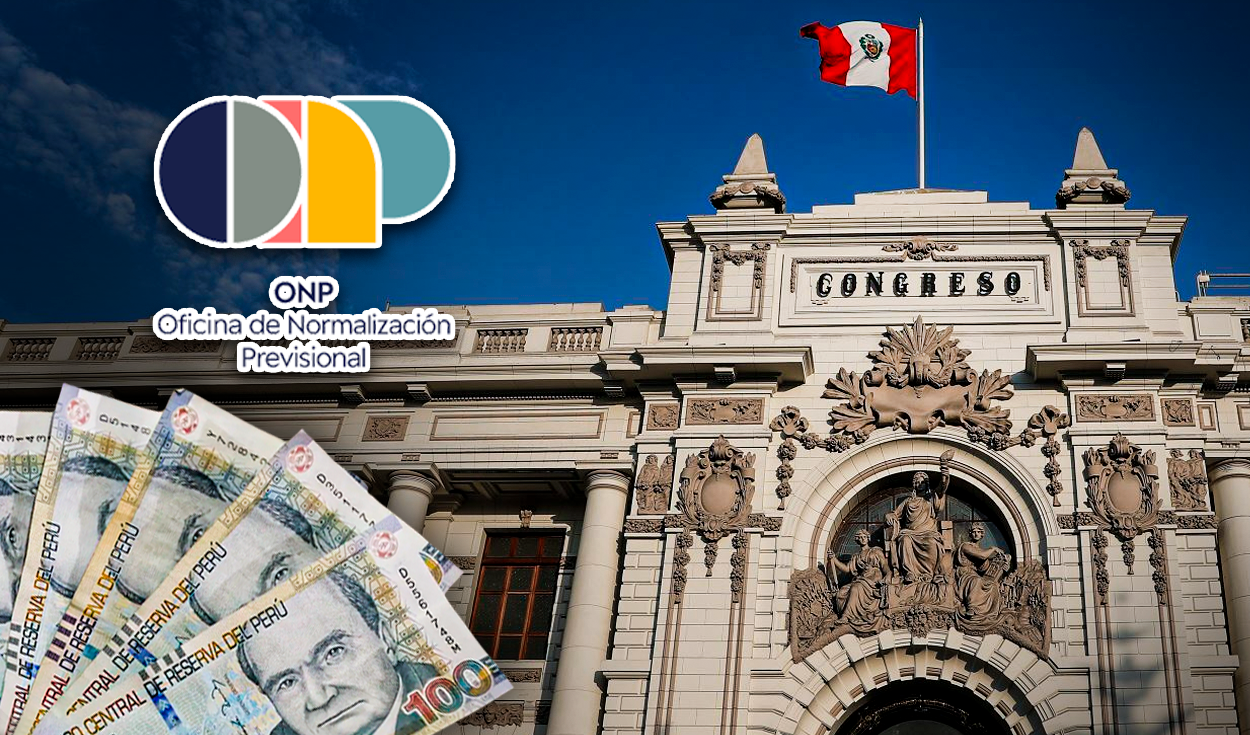
Despite the fact that there are previous questions regarding this type of initiative, the congresswoman of the Magisterial Bloc, Katy Ugarte, presented a bill so that contributors to the National Pension System can optionally withdraw up to 4 UIT (S/20,600) of the money accumulated in the Pension Normalization Office (ONP).
This is the second legislative proposal in Parliament on this issue. Previously, Américo Gonza of Peru Libre had presented a similar measure with the aim of reducing the impacts of the economic crisis in the country. As we recall, the Executive power In 2020, he observed a bill approved by Congress that sought to authorize the withdrawal of contributions to the ONP.
AFP withdrawal: they propose authorizing the release of up to 4 UIT
A new bill to release pension funds has entered the Congressional documentary process. As happened with access to the money accumulated in the AFPThis time, parliamentarian Katy Ugarte, from the Magisterial Bloc, seeks to authorize the optional withdrawal of up to 4 UIT (S/20,600) from the Pension Normalization Office.
This is Bill No. 8371, which authorizes contributors to the National Pension System to withdraw up to 1 UIT per month for 4 consecutive months from the initial request, with the aim of promoting economic recovery in Peru.
“This bill is a necessary and timely measure that responds to the current conditions of economic vulnerability faced by a significant proportion of the Peruvian population. Therefore, allowing the withdrawal of public pension funds provides an additional safety net, helping people better manage adverse economic impacts,” reads the explanatory statement of the aforementioned proposal.
But this is not the only legislative initiative on this issue. On June 4 of this year, parliamentarian Américo Gonza of Peru Libre, proposed a bill that empowers the extraordinary withdrawal of up to 4 UIT of its funds for contributors and former contributors to the ONP, among other provisions such as raising the pension of retirees by up to S/1,200 and returning funds to those who moved to the SPP and had their contributions withheld.
Both proposals have been referred to the Economic Commission chaired by legislator César Revilla and it is estimated that they could be discussed in the next legislature that begins in August. In addition, the bill that seeks to authorize an ONP withdrawal must be addressed in the Labor Commission, led by Pasión Dávila.
ONP withdrawal: previous questions and viability
In Congress there are two bills seeking to approve a withdrawal of public pension funds. However, this is not the first time that a similar measure has been attempted to be promoted. In 2020, the government of Martín Vizcarrá observed the law signed by Parliament, which proposed a special optional regime for the return of contributions to the ONP, of up to 1 Tax Unit (UIT), equivalent to S/4,300.
That year, a letter was sent to Manuel Merino, the former president of Congress who was a coup leader, stating that the law was unconstitutional and that it distorted social security to the detriment of pensioners. In addition, the Executive pointed out that it was technically unviable because the SNP is based on a distribution system where there is no fund to accumulate contributions, since these are used to pay pensions.
“If a proposal of this type is approved, the first ones whose rights will be affected are the current pensioners, since the money collected each month would not be used to pay their pensions, but rather to return their contributions, thus affecting the financial sustainability of the system,” reads the document sent by former President Vizcarra.
Unlike the private pension system, where there are individual capitalization accounts, the basis of the public system is a pay-as-you-go fund based on contributions from active workers to pay pensioners.
Source: Larepublica
Alia is a professional author and journalist, working at 247 news agency. She writes on various topics from economy news to general interest pieces, providing readers with relevant and informative content. With years of experience, she brings a unique perspective and in-depth analysis to her work.











